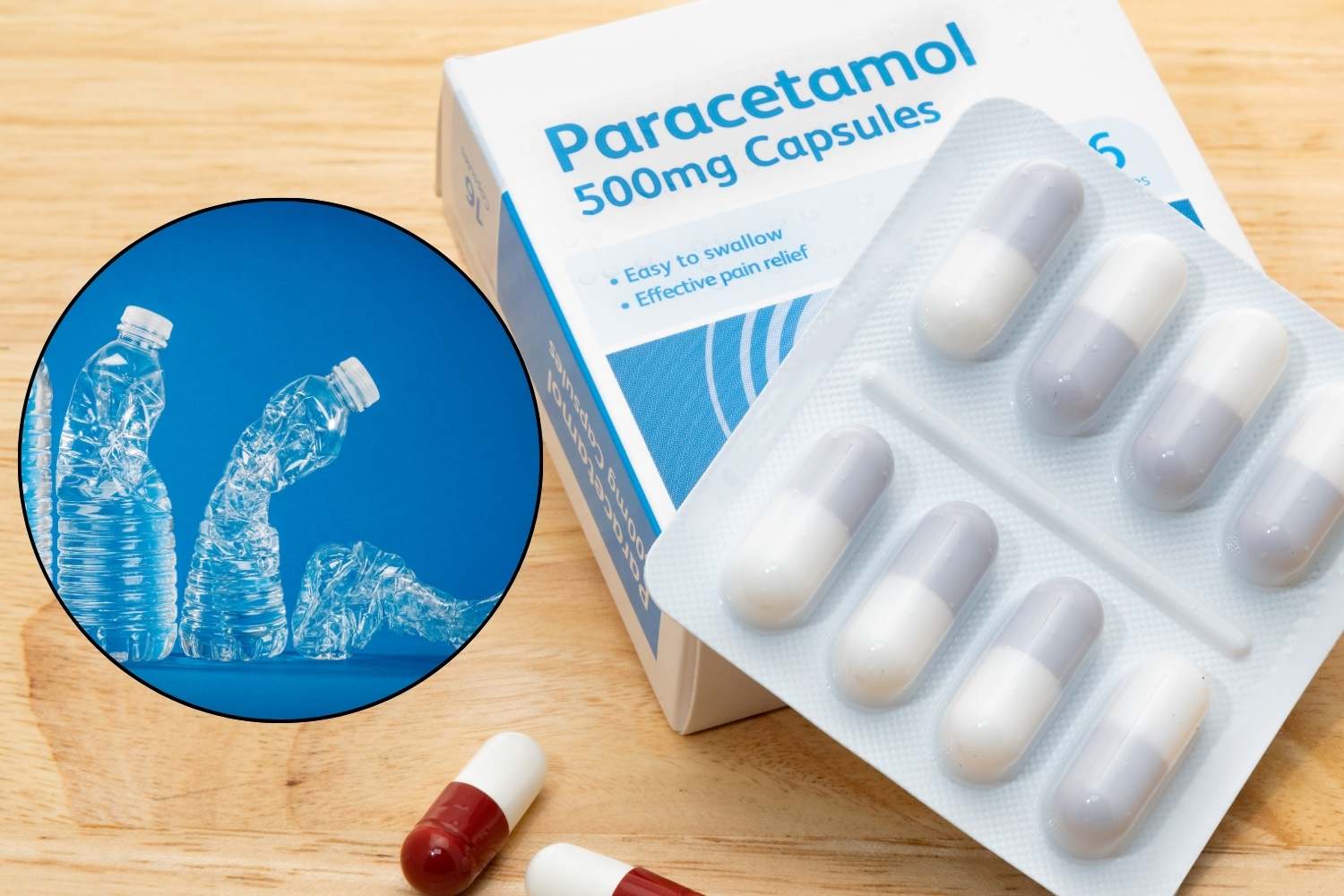Researchers at the University of Edinburgh have turned recycled plastic into paracetamol using genetically modified bacteria, marking a major step toward sustainable pharmaceutical production.

A different kind of paracetamol
Imagine buying paracetamol — the common over-the-counter painkiller — knowing that it came not from fossil fuels, but from recycled plastic bottles. This might sound like science fiction, but researchers at the University of Edinburgh have just brought this idea one step closer to reality. Their groundbreaking study, published in Nature Chemistry in June, shows that it’s possible to create a key component of paracetamol from plastic waste, thanks to the help of genetically modified bacteria.
Currently, paracetamol (also known as acetaminophen) is synthesized from petrochemical derivatives, tying its production to the oil industry. But the team led by Professor Stephen Wallace has developed a new process that starts with polyethylene terephthalate (PET) — the plastic found in soda bottles and packaging — and transforms it into a low-emissions precursor for the drug.
It’s not just a cleaner method. It could be a game-changer for both pharmaceutical manufacturing and plastic waste management.
How bacteria are turning trash into treatment
The heart of this discovery lies in an unlikely ally: Escherichia coli, a bacterium best known for its role in food poisoning. But this time, it’s a harmless strain, re-engineered for a very different purpose.
The process begins by chemically converting PET into an intermediate compound. Then, using genetically modified E. coli, that compound is transformed into para-aminobenzoic acid (PABA) — a molecule vital for DNA synthesis in bacteria and a key precursor in the production of paracetamol.
To force the bacteria to rely on the modified plastic, the researchers disabled their natural ability to produce PABA. In essence, the microbes were made “dependent” on PET waste for survival. But the real magic happened when scientists introduced two foreign genes — one from a fungus, the other from soil-dwelling bacteria — that allowed E. coli to complete the final conversion from PABA to paracetamol.
What’s fascinating is not just the genetic engineering, but a rare chemical reaction that took place inside the bacteria: the Lossen rearrangement. This complex transformation is usually tricky to achieve in a lab setting. Yet here it happened naturally within the cells, catalyzed by the phosphate present in the bacteria themselves. According to Wallace, this is the first time such a reaction has ever been seen in a biological environment.
“It’s the key to merging chemistry and biology in a single, sustainable solution,” he said.
Fast, efficient, and low-impact
The numbers speak for themselves. The modified bacteria produced paracetamol in under 24 hours, with a yield of up to 92% and minimal environmental impact. If these results can be replicated on an industrial scale — a big “if” at this point — it could pave the way for a new, circular approach to drug production that starts with garbage, not crude oil.
But excitement isn’t universal. While scientists are hailing the breakthrough, environmental NGOs are cautious. Their concern? That such innovations might create the illusion that “all plastic can be recycled”, potentially justifying more plastic production rather than addressing the root problem. As they often point out, reducing plastic use at the source remains the most urgent goal.
What happens next
It’ll likely be years before “recycled paracetamol” finds its way to your pharmacy shelf. Extensive testing, regulatory approvals, and industrial scaling still lie ahead. But make no mistake: the work done at the University of Edinburgh marks a turning point. It shows that biotechnology can not only help clean up the mess we’ve made — it can turn that mess into medicine.
